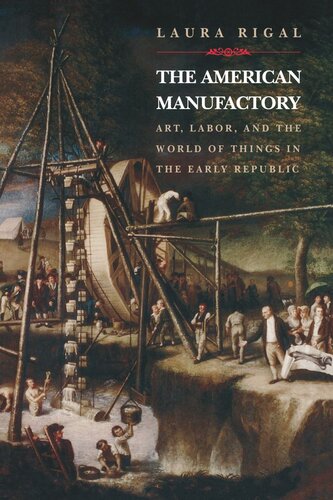

Most ebook files are in PDF format, so you can easily read them using various software such as Foxit Reader or directly on the Google Chrome browser.
Some ebook files are released by publishers in other formats such as .awz, .mobi, .epub, .fb2, etc. You may need to install specific software to read these formats on mobile/PC, such as Calibre.
Please read the tutorial at this link: https://ebookbell.com/faq
We offer FREE conversion to the popular formats you request; however, this may take some time. Therefore, right after payment, please email us, and we will try to provide the service as quickly as possible.
For some exceptional file formats or broken links (if any), please refrain from opening any disputes. Instead, email us first, and we will try to assist within a maximum of 6 hours.
EbookBell Team

4.3
78 reviewsThis cultural history of American federalism argues that nation-building cannot be understood apart from the process of industrialization and the making of the working class in the late-eighteenth-century United States. Citing the coincidental rise of federalism and industrialism, Laura Rigal examines the creations and performances of writers, collectors, engineers, inventors, and illustrators who assembled an early national "world of things," at a time when American craftsmen were transformed into wage laborers and production was rationalized, mechanized, and put to new ideological purposes. American federalism emerges here as a culture of self-making, in forms as various as street parades, magazine writing, painting, autobiography, advertisement, natural history collections, and trials and trial transcripts.
Chapters center on the craftsmen who celebrated the Constitution by marching in Philadelphia's Grand Federal Procession of 1788; the autobiographical writings of John Fitch, an inventor of the steamboat before Fulton; the exhumation and museum display of the "first American mastodon" by the Peale family of Philadelphia; Joseph Dennie's literary miscellany, the Port Folio; the nine-volume American Ornithology of Alexander Wilson; and finally the autobiography and portrait of Philadelphia locksmith Pat Lyon, who was falsely imprisoned for bank robbery in 1798 but eventually emerged as an icon for the American working man. Rigal demonstrates that federalism is not merely a political movement, or an artifact of language, but a phenomenon of culture: one among many innovations elaborated in the "manufactory" of early American nation-building.